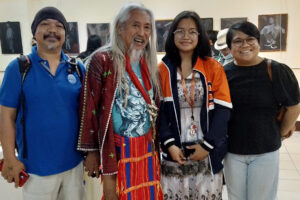The last week of classes literally translates to “hell week” for many student researchers for a reason. It is at this point in time when they would defend their scholarly work, be it a research proposal or THE final defense. For many, the word research equates to a mind-boggling academic feat.
I am not a research expert, but here are a handful tips to avoid getting at your wit’s end in building the foundations of your study:
First, exhaust all available literature. For a study to be credible, its literature should be based on equally credible published outputs. There is no room for gray literature in research. Avoid predatory and non-credible references. Most importantly, all researches must be aware of the difference between a problem-driven research vis-à-vis an objective-driven research. This is to avoid being part of the collateral damage of an error laden study. Remember, anything built on weak foundation would not be given the chance to flourish. After all, it is after you exhaust the literature related to your topic that you will uncover the research gaps, which would eventually be your bases in coming up with your research problem.
Second, focus on the problem and the method. The mere conceptualization of a valid research problem is already a tedious task in itself. The common research dilemmas of student researchers are having no actual research problem at all to start with, having research ideas which are not scholarly enough, very local issues and problems, the non-alignment or non-integration of the key elements of the research paper, the use of faulty methods, and the lack of significance of the topic to the discipline per se. Devising an intelligent research problem may really be mind-excruciating, but one should keep in mind that it is the foundation of a good research. Simply put, if the research problem is not literature-based, the output will not also be literature-bound. Properly identifying your problem would eventually suggest the best method for your study.
Next, apply the principle of parsimony. This principle emphasizes that things are usually connected or they behave in the simplest or most economical way. Thus, since research is a form of scientific writing, the said principle should be applied. The simpler the manner a study is written, the better and the more comprehensible it is. Indeed, it’s not the length that matters but the substance. The KISS formula would say it all: Keep It Short and Simple. This is particularly applicable if your institution follows the journal format for researches. If you want your study to be published in a reputable journal later on, the editors would eventually impose a reasonable limit in terms of the length of your research. Thus, write to express, not to impress.
There are other aspects of scientific writing that many researchers usually ignore. One example is the correct usage of key words. Some may think that it is just an optional part of the research paper, but it is more than that. It actually works like a hashtag in research search engines that would make it easier to find related studies on a particular topic. Another is the distinction between results and findings. You can’t freely use these terms interchangeably in scientific writing because it would depend on whether a research is experimental or not. Thus, you should really know by heart what you want to research on. Lastly, student researchers should not disregard the ethical considerations in research. A researcher is bestowed with the responsibility and the moral obligation of not revealing the identity and not inflicting harm on the respondents.
The list may go on and on. This just proves that doing research is not an overnight job. It should not be not done for compliance’s sake only. Doing research entails utmost diligence, patience and perseverance on the part of the researchers. It is a serious task which entails hard work and determination. After all, your research will eventually be your contribution to the body of knowledge, so better pour your heart into it.
















